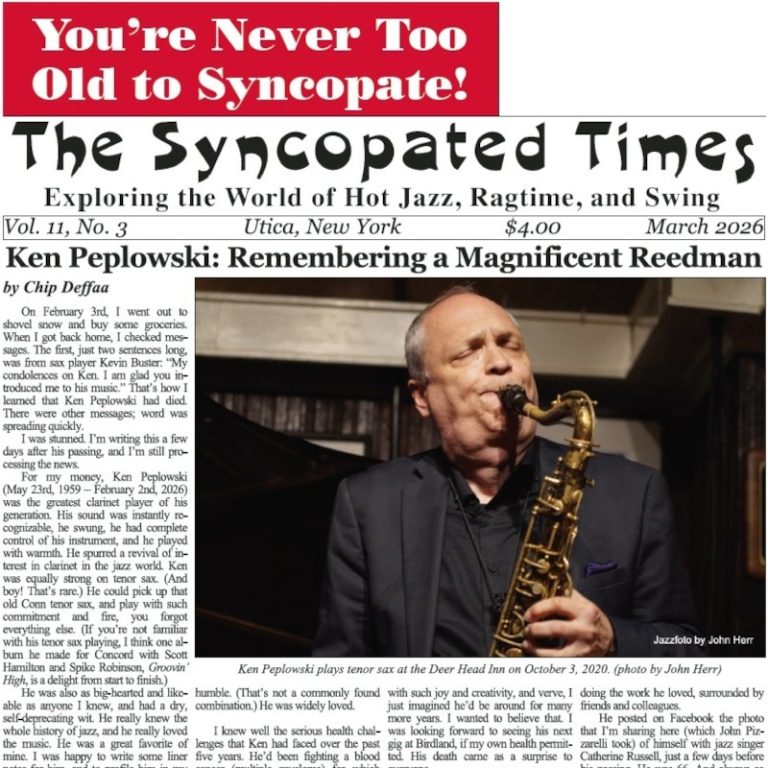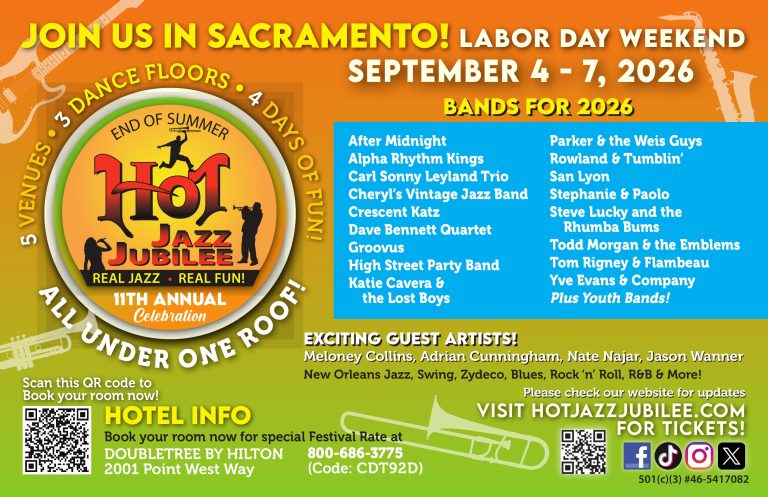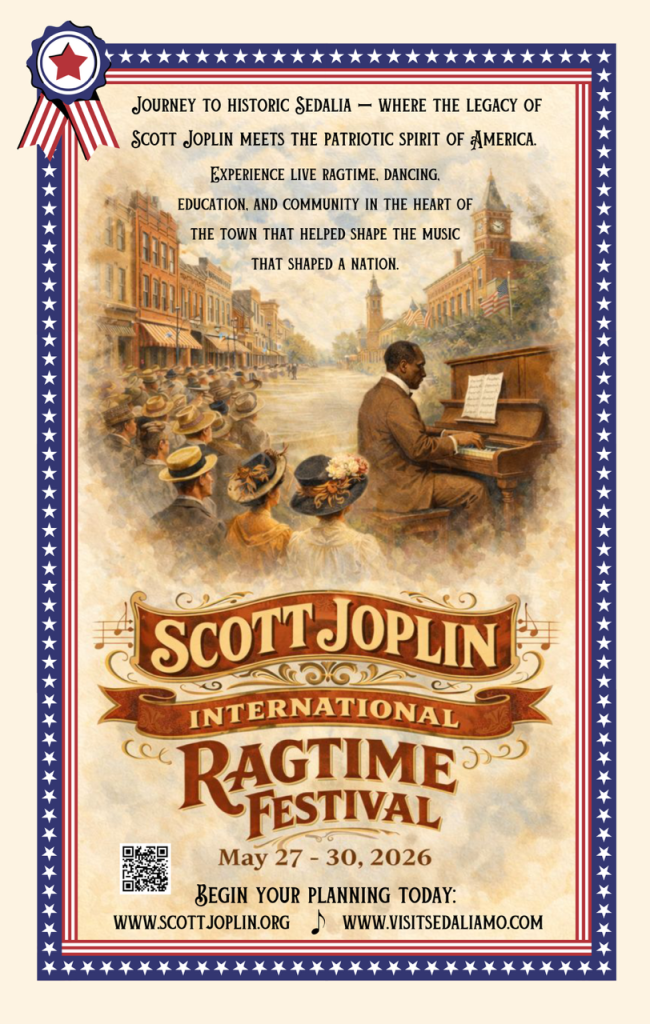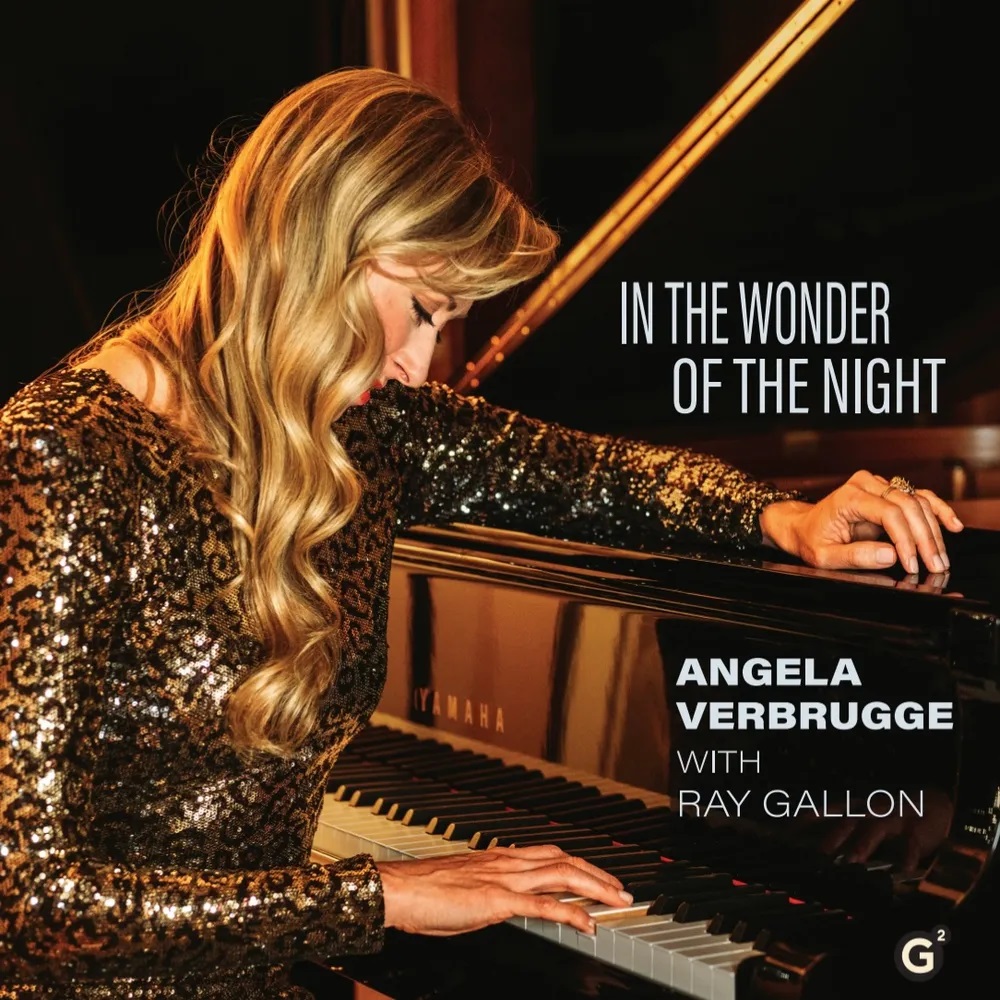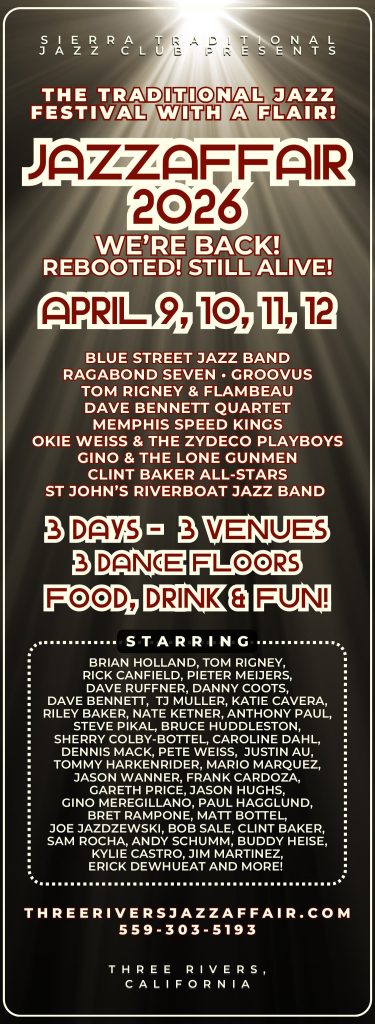Cheers for Terry Waldo!
To the Editor:
I enjoyed the recent article about Terry Waldo by Larry Melton and Neal Siegal published in the April edition of The Syncopated Times. Terry is truly a marvelous musician and a wonderful raconteur. I have fond memories of the handful of gigs he played with the New Black Eagle Jazz Band many years ago.
My earliest recollection was his filling in on short notice for our pianist Bob Pilsbury the first time the band was invited to play at the St. Louis Ragtime Festival in 1972. He fitted in perfectly and we all had a great weekend of music. From then on, whenever the need arose and Terry was available, we were delighted to have him rejoin us. One such occasion stands out: A summer concert in 1982 at Jacob’s Pillow, a beautiful theatre in the Berkshire Hills of Massachusetts, featuring special guest vocalist Odetta.
Terry also recorded with the Black Eagles. He along with Butch Thompson, Dickie Wetmore, Brian Ogilvie and Don Kenney were on stage in 1981 to help the Black Eagles celebrate our 10th anniversary at a sold out concert in Boston’s Symphony Hall. A recording of that concert i
You've read three articles this month! That makes you one of a rare breed, the true jazz fan!
The Syncopated Times is a monthly publication covering traditional jazz, ragtime and swing. We have the best historic content anywhere, and are the only American publication covering artists and bands currently playing Hot Jazz, Vintage Swing, or Ragtime. Our writers are legends themselves, paid to bring you the best coverage possible. Advertising will never be enough to keep these stories coming, we need your SUBSCRIPTION. Get unlimited access for $30 a year or $50 for two.
Not ready to pay for jazz yet? Register a Free Account for two weeks of unlimited access without nags or pop ups.
Already Registered? Log In
If you shouldn't be seeing this because you already logged in try refreshing the page.

